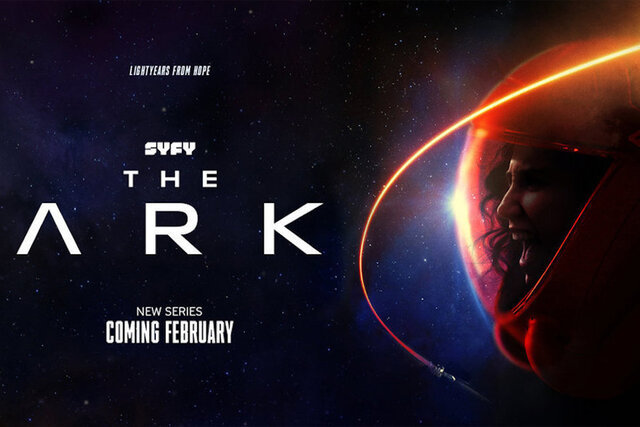I rather like the official summary for episode 8 of The Ark, “Every Single Person Matters,” so let’s start there: “A polarizing figure enters the equation as the crew suffers technical difficulties.”
Like last time, I’m going to jump right into spoilers for all the previous episodes, as it’s unavoidable now. The “polarizing figure” is William Trust (rhymes with Elon Musk), the mad genius who developed the program to save humanity after also almost killing everyone. His wife, Helena, is the reason they’re on Ark 1 in the first place. Lane intended to keep their presence a secret, but the first thing Helena did when she woke up from cryosleep was knock him over the head, so the crew came looking.
The cat’s out of the bag now!
Garnet, displeased that her second in command kept the stowaways a secret, relieves him of duty. It makes sense, but also opens up a schism on the ship, as now Lane’s only allegiance is to Mr. and Mrs. Trust (he spells it out for us). Brice is displeased to see Trust, blaming him for causing the disease that’s killing him, and punches the great man in the face. Garnet doesn’t punish him, though.
Eva doesn’t think any less of him either, and they continue sleeping together.
No, this show doesn’t have time for any Sam and Diane will they or won’t they nonsense. They’re kinda saving that tension for Angus and Alicia, using Kelly to create some romantic tension. Unfortunately, that’s the only tension she creates this week, as all her potentially evil plans that were set up last week are seemingly forgotten. Now she just flirts with the farmboy, to Alicia’s dismay.
And ours.
Meanwhile, this week’s problem is whether or not to use the faster than light (FTL) drive Eva lifted from Ark 3, and the consequences when they do. Trust says it’s a bad idea as its developer, Evelynn Maggs, has a reputation for cutting corners. But at the rate the ship is going through fuel, it’s a now or never situation and Garnet gives Eva the okay to try it. For a second I thought it was going to work, they’d get to the planet, and we’d get off the ship for the first time.
Of course, it didn’t work.
Time gets all wonky and Trust has to help them pull the plug before space time fractures. Or something. It was nice to see the crew being proactive again and not just reacting to the ship falling apart for the umpteenth time. Now our focus can return to the characters. Eva thinks maybe Trust can cure Brice’s illness, but he doesn’t. Alicia and Eva have a heart-to-heart, where Alicia finally admits her feelings for Angus. Because he saved their lives on Earth, Helena wants Felix to be their bodyguard, even though he hates her.
William Trust (rhymes with Elon Musk) is chasing any woman with a pulse, and Cat is happy to resume to their affair.
Now we know how a social media influencer got a primo spot on the ship.
Science fiction has almost always been used to shine a light on current events. When it’s done well we get the compelling stories of early Star Trek. When it’s done poorly we get we the woke preaching of contemporary Star Trek. So far the main thrust of The Ark has been worldbuilding and character development, but that doesn’t mean it will remain so. I’ve made a lot of jokes about William Trust (rhymes with Elon Musk), but it’s clear he is an Elon analog.
The Trust Foundation logo is literally the Tesla T.
I don’t know where they’re going with this. I do find it interesting that at least twice Trust talks about how emotional and irrational humans are, as if he’s not human. Unlike some of the characters on the show, he’s neither all good nor all bad. In any case, I foresee some social commentary on the horizon that could go either way. What I appreciate at the moment is how the show seems to be discouraging hero worship and placing emphasis on the role of individuals within the community.
So while the eighth episode may be a step back in quality, I appreciate the developing themes.

























